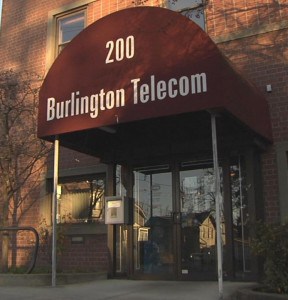 According to Edmonton city Councillor Kerry Diotte (11th Ward), Rogers Communications told him the company needs up to 1,000 new cell towers in the Edmonton area alone to meet the growing demands from cell phone, smartphone, and tablet owners who are putting pressure on the company’s wireless network. That’s a number Rogers disputes, but regardless of how many towers eventually get erected, few residents want to live next door to one.
According to Edmonton city Councillor Kerry Diotte (11th Ward), Rogers Communications told him the company needs up to 1,000 new cell towers in the Edmonton area alone to meet the growing demands from cell phone, smartphone, and tablet owners who are putting pressure on the company’s wireless network. That’s a number Rogers disputes, but regardless of how many towers eventually get erected, few residents want to live next door to one.
Diotte is caught in the middle of a major, some say inevitable, fight between the telecommunications giant and homeowners living near the proposed home of a new 25 meter cell tower that is as tall as an eight story building.
Diotte attended a heated public meeting Tuesday evening between residents of Hazeldean and Rogers officials over plans to place the new monopole antenna right in the center of town in a residential district.
“I will absolutely bring everything that I can to try to stop this,” Diotte told CTV Edmonton. “It’s the will of the people in this ward.”
CBC Radio in Edmonton explored the cell tower controversy in Hazeldean back in July when Rogers first announced plans to erect an 82 foot monopole cell tower at a local senior’s center. Rogers says increased demand requires the company to place new cell towers in residential neighborhoods to meet demand. July 14, 2011. (7 minutes)
You must remain on this page to hear the clip, or you can download the clip and listen later.
Rogers officials found themselves shouted down at times during Tuesday evening’s meeting, as dozens of residents complained the new tower would reduce property values and could pose a health risk. At least one resident wants Rogers to pay moving expenses to allow her family to leave the area before the tower is built.
Hazeldean residents say a better spot for the antenna would be in an industrial neighborhood a few blocks away.
Rogers Communications says wireless data demands are growing exponentially, and constructing new cell towers improves reception, data speeds, and divides up the increasing load of data traffic on their network. Unfortunately, cell towers are increasingly required where customers live, work… and use their wireless devices.
For the immediate future, Rogers has plans for 20 new cell towers in Edmonton, a number dwarfed by their competitor Telus, which has plans to install 80 new cell towers across the province this year.
Industry Canada has the final say on whether Rogers will ultimately win approval to place its proposed cell tower in Hazeldean.
[flv width=”480″ height=”380″]http://www.phillipdampier.com/video/CTV Edmonton Residents Upset Over Rogers Cell Tower 9-21-11.flv[/flv]
CTV Edmonton covered the Hazeldean cell phone tower controversy and spoke with a city councilman who shared Rogers told him they would need another 1,000 cell phone towers in the Edmonton area alone to meet growing demands for cell phone users. (5 minutes)


 Subscribe
Subscribe








